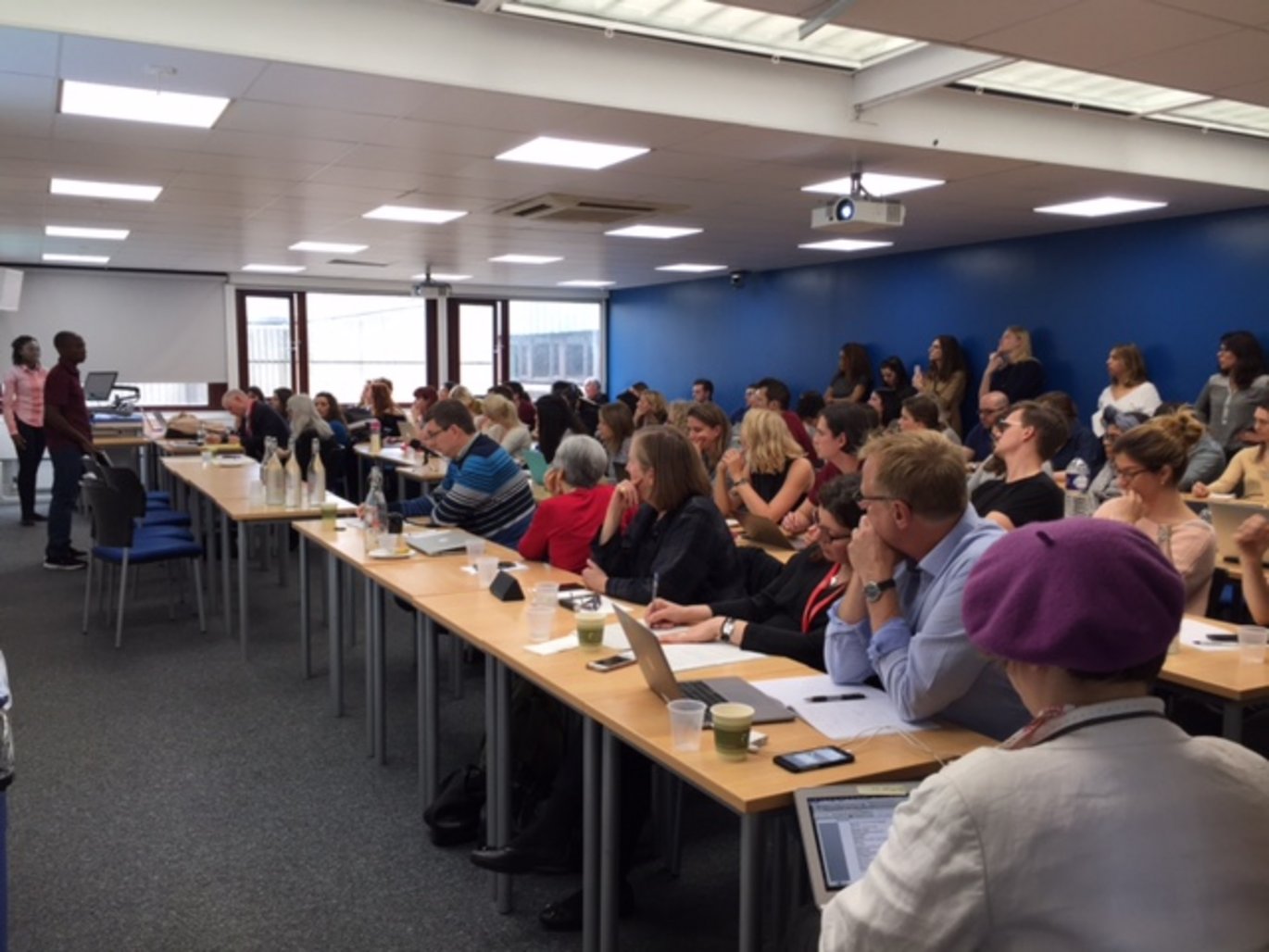Seeking new solutions to journalism's challenges
Earlier this month the Mundus Journalism Consortium held a half day seminar at City University, London, to revaluate the central values and mission of journalism today.

The afternoon seminar series of three panel discussions brought Mundus Journalism students and alumni together with professional practicing journalists to discuss pressing editorial challenges within contemporary journalism.
Henrik Bødker, chair of the Mundus Journalism Board of Studies, explained that the "original idea for the conference was to get industry and education more closely aligned". The seminar provided an opportunity to seek both academic approaches to editorial changes as well as to discuss the daily experiences and insights from practicing journalists.
This intersect between the often distant worlds of reflective academia and fast paced news production offered new insights for both the panelists and the audience.
Erasmus Mundus students past and present
"In order to break the bubble we need different types of people to be on the inside of the bubble." - Priyanka Kaira
As well as outlining the barriers and conflicts facing the core values and purpose of journalism, the seminar sought to propose innovative solutions. Addressing a packed room filled with students and academics at City, University of London, the first panel was headed by Mundus Journalism students, both past and present.
Students, currently in their second year of the programme, took the audience through their targeted research focused on three centrals issues; journalism’s disconnect from groups of citizens, distrust of media and journalists and echo-chambers on social media and in legacy media. Alumni meanwhile, drew both on academic research which they had undertaken as well as their journalism careers since completing their masters programme.
Similar challenges, different solutions
Priyanka Kalra, from India and currently studying in Amsterdam, outlined the elitism of practicing journalists within the US and advocated for the recruitment of journalists with a wide range of political opinions into news rooms. Priyanka argued that "diversity isn't only about gender and race. "In order to break the bubble we need different types of people to be on the inside of the bubble."
Alumna Paulette Desormeaux offered an alternative approach informed by her experiences researching her masters thesis in Hamburg as well as her professional practices in Chile. Paulette suggested that entirely new media systems and organisations need to be developed in order to truly achieve a diversity of voices and opinions. Since completing her masters in 2010 Paulette has gone on to help found Base Publica, a media foundation which seeks to change the media's "mode of production" by creating dialogues with citizen's who decide which issues which should be covered.
"Journalists have taken some things for granted for too long." - Jonathan Derbyshire
Echo chambers and elitism
The topics of echo chambers and audience distrust and disconnect from mainstream media were carried into the next panel discussion. The conversation was led by industry speakers who used insights from their professional practices to tackle the questions. Kate de Pury from Associated Press' Moscow bureau described how she has "lived in the biggest echo chamber in the world…which is fairly hermetically sealed". Despite the challenges that Kate and her teams faced in Russia Kate emphasised that "from this unfertile ground remarkable journalists continue to appear". These journalists - and a framework of grants and foundations to support innovative journalists to do remarkable work - continue to give Kate hope.
As Executive Comment Editor for the Financial Times (FT) Jonathan Derbyshire admitted that he and his team often faced accusations of being in "an echo chamber of the denizens of the global elite, defending 'Bremoaners' (those who voted to remain during the Brexit referendum)". Jonathan defended the FT against these claims, citing internal research that he had produced which showed that letters and opinion pieces from both Remain and Leave voters featured equally.
A dual approach
Despite working to ensure a balance of opinion for his publication Jonathan acknowledged that "journalists have taken some things for granted for too long". Drawing on his education in philosophy has been valuable for Jonathan in his journalism approach, particularly to address questions such as "what is truth?" and "what is fact?". These core values need to be redefined in order to face the current challenges to the legitimacy of mainstream media. Perhaps this dual approach of analytical academic questioning and practical experience from within the industry can offer some solutions.
Words by City, University of London student Cynara Vetch. Images by Inger Munk of DMJX.
Mundus Journalism received funding support from the Erasmus+ initiative of the European Union to host this event.